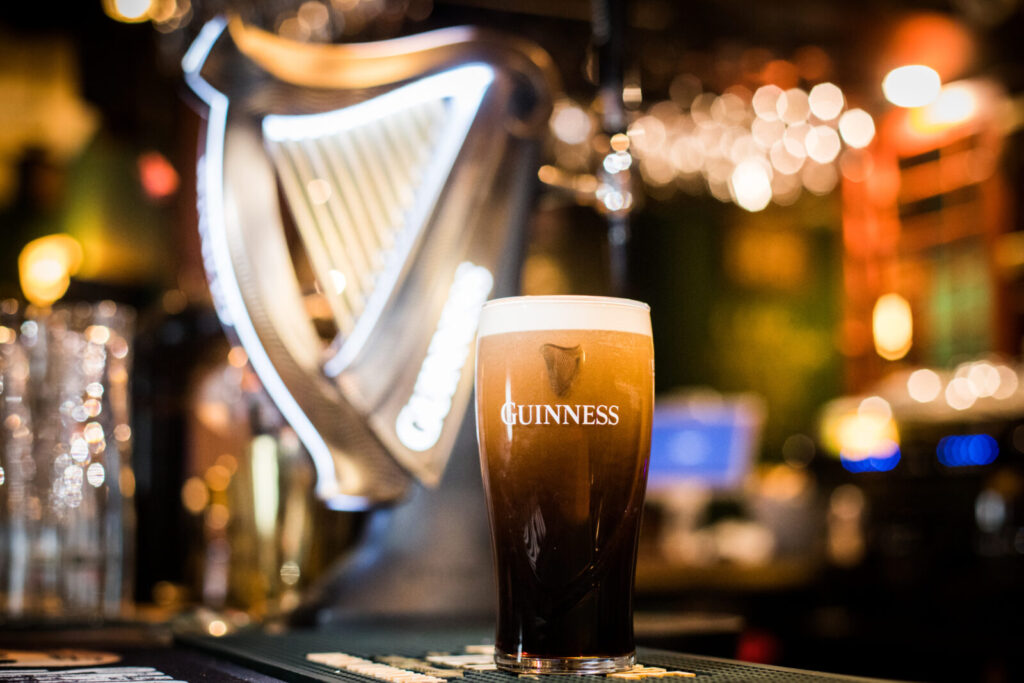Brief • 3 min Read
In The Harris Poll Tracker (Week 85) fielded October 8th to 10th, 2021 among 1,967 U.S. Adults, we look at how some Americans conflate the COVID and flu vaccines, what consumers think about the latest Facebook controversy, the compounding pressure facing the American workforce, the struggles facing startups in a post-COVID world, and how consumers are embracing cannabis.
As a public service, our team has curated key insights to help leaders navigate COVID-19. Full survey results, tables, and weekly summaries can be accessed for free at The Harris Poll COVID-19 Portal. We will continue to actively field on a regular cadence to track the shifts in sentiment and behaviors as the news and guidelines evolve.
1. Americans Conflate Protection From COVID, Flu Shots: Axios-Harris Poll
Some Americans are mistakenly banking on one vaccine to protect against both COVID and the seasonal flu this year, according to our data provided exclusively to Axios and written about in their Vitals newsletter. Here’s what else we found:
- A quarter of Americans (26%) mistakenly say they think the COVID vaccine would also protect them from the flu, including nearly a third (30%) of COVID-vaccinated Americans, but just (16%) of Americans who haven’t gotten a COVID shot.
- Conversely, nearly another quarter (23%) believe the flu vaccine would also protect against COVID.
- There’s also confusion when it comes to the booster, as (28%) of Americans think a COVID booster shot would also protect them from the flu.
- “There is another potential looming public health crisis when more than a quarter of the country incorrectly assumes a flu shot, a COVID vaccine or a booster are interchangeable protection,” said John Gerzema, CEO of The Harris Poll.
Takeaway: While public health officials have been pushing for individuals to get their COVID-19 shot, they face the simultaneous challenge of convincing them to get a flu shot in what is predicted to be a worse-than-normal flu season.
2. Facebook Users Unlikely to Delete App But Want Brands to Pull Ads: Ad Age-Harris Poll
Facebook’s reputation woes continue to mount after whistleblower Frances Haugen, former product manager, testified before Congress about internal decision-making at the social media giant. In a survey in partnership with Ad Age, here is how consumers feel about the revelations:
- Of those familiar with issues raised by the whistleblower’s test, over half (55%) agreed brands and organizations should stop advertising on Facebook.
- Guilty By Association: Over three-quarters (78%) said brands should be concerned about ads appearing next to negative content on websites or apps, and (54%) said that they associate a brand with the unrelated content surrounding ads on social media and websites.
- Over three-fifths (63%) were aware of Haugen’s assertion that Facebook prioritizes “making money over the well-being of its users” – and three-quarters (77%) of the public agrees that Facebook is more interested in its bottom line than protecting users.
- Despite some of the negative sentiment, (62%) said it was unlikely they would delete the Facebook app and over half said that time spent on Facebook (52%) or Instagram (55%) is not worse for mental health than other apps.
- Facebook has one of the worst corporate images among highly visible companies, ranking #98 in our Axios Harris Poll 100 from earlier this year.
Takeaway: Brand safety has been a recurring problem for advertisers on sites like Facebook, where content is personalized, customized by algorithms, to each user’s interests. As Facebook’s reputation continues to decline amid scandals, brands may follow public opinion and take note before spending so much of their marketing budget on the platform.
3. The American Workforce Faces Compounding Pressure: APA-Harris Poll
After more than a year of working during the pandemic, the American workforce reports compounding pressures that are impacting their stress, their ability to do their jobs, and whether they’ll soon look for a new workplace. Here’s more from the APA’s 2021 Work and Well-Being survey done in partnership with The Harris Poll:
- More than 2 in 5 intend to change jobs, up from 1 in 3 in 2019. Those who typically feel tense or stressed out during the workday are more than three times as likely to say they intend to seek employment elsewhere in the next year (71% vs. 20%).
- When it comes to the impact of different factors on employee stress levels at work, low salaries (56%, up from 49% in 2019), long hours (54%, up from 46%), and lack of opportunity for growth or advancement (52%, up from 44%) are most commonly reported as very or somewhat significant.
- Nearly 3 in 5 employees (59%) have experienced negative impacts of work-related stress in the past month, including a lack of interest, motivation or energy (26%), difficulty focusing (21%), and a lack of effort at work (19%).

Takeaway: There are certain actions employers can take to create a psychologically healthy workplace and support employees’ mental health including offering flexible hours (34%), encouraging employees to take care of their health (32%), encouraging employees to use paid time off (30%), and encouraging breaks during the workday (30%).
4. Striving and Thriving: Startups in the Post-COVID World
What might the post-COVID world look like for startups? We asked startup entrepreneurs and leaders across different industries to paint a picture of their concerns, hopes, predictions, and plans for the post-pandemic world. Part one of this two-part study can be downloaded here and here are some highlights:
- A large majority (89%) of startup entrepreneurs say that the pandemic has presented new innovative opportunities for their businesses.
- But (83%) believe the pandemic has made top management buy-in for innovation more difficult and (77%) also say that innovation budgets have decreased in the aftermath of the pandemic.
- Startup leaders believe that understanding market needs and trends and a diverse workforce (26% each) are tied for the most crucial factors to innovations in the post-pandemic business world.
- As for investors, (87%) of startup entrepreneurs believe that investors now care more about positive cash flow than growth potential and (81%) believe investors’ confidence in startup success has been eroded by the pandemic.

Takeaway: It would do well for startups to remember the need to build stronger business cases for new innovations has never been greater and that customer-centricity and workforce diversity will have major impacts on innovation.
5. 40% of Americans Have Purchased A Cannabis Product: Morning Brew-Harris Poll
The Harris Poll teamed up with our friends at Morning Brew on cannabis and it’s future for consumers. Are people embracing it as shoppers, particularly as legalization efforts ramp up? And if so, how – and what – are they buying? Here’s what we found:
- Two-thirds of Americans (66%) believe that recreational cannabis should be federally legalized, while (84%) say medical cannabis should be legalized.
- The recreational support number jumps to (79%) for Millennials and (76%) for Gen X, while less than half (48%) of Boomers were in favor.
- However, just (40%) of Americans said they’ve ever bought a cannabis product, and just a third had ever visited a dispensary for recreational reasons, with the overwhelming majority doing so for the first time prior to the pandemic (81%).
- Most people (54%) are getting their products from cannabis stores, and even if other avenues open up to cannabis products, half (50%) of consumers would still prefer to buy from a dispensary.
- But it will be tough to change some minds as a third (34%) of those who have never purchased cannabis said they never would, regardless of legalization.
Takeaway: As legal recreational cannabis expands across the country – and social taboos continue to fade – the cannabis market is becoming a key area of opportunity for brands and marketers to expand in. After all, Justin Bieber and Steven Van Zandt are the latest influencers to enter the market.
Subscribe for more Insights
Subscribe to our newsletter for the latest trends in business, politics, culture, and more.
Download the Data
This survey was conducted online within the U.S. by The Harris Poll from October 8 to 10, among a nationally representative sample of 1,967 U.S. adults.
Download
Subscribe for more Insights
Subscribe to our newsletter for the latest trends in business, politics, culture, and more.
Download the Data
This survey was conducted online within the U.S. by The Harris Poll from October 8 to 10, among a nationally representative sample of 1,967 U.S. adults.
DownloadRelated Content








